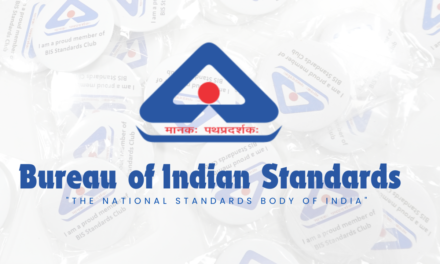How do textile agents help small and medium-sized businesses enter competitive global markets?
Textile agents play a crucial role in helping small and medium-sized businesses (SMBs) navigate and succeed in competitive global markets. Their expertise, networks, and services can help SMBs overcome barriers such as limited resources, lack of market knowledge, and challenges with supply chain management. Here’s how textile agents assist SMBs in entering global markets:
1. Access to Global Suppliers and Manufacturers:
- Expanding Supplier Networks: Textile agents help SMBs access a wide range of suppliers and manufacturers that they might not have direct access to. This includes raw material suppliers, fabric manufacturers, and finished goods producers from various regions across the world. By leveraging their global network, agents can help SMBs find the best suppliers, often at more competitive prices.
- Connecting with Niche Suppliers: SMBs may find it difficult to identify specialized or niche suppliers in global markets. Agents with industry knowledge can connect them with the right suppliers for unique or high-quality materials that may not be readily available in their local markets.
2. Cost Savings through Negotiation:
- Negotiating Better Prices: SMBs often face challenges with pricing due to their smaller order quantities compared to large corporations. Textile agents leverage their relationships with suppliers and their deep knowledge of the market to negotiate better pricing, even for smaller orders. They can often secure discounts or favorable payment terms that SMBs may not be able to obtain independently.
- Reducing Overheads: By utilizing an agent’s expertise in cost negotiation, SMBs can lower production costs and manage their budgets more effectively, allowing them to stay competitive in international markets.
3. Expert Guidance on Product Design and Development:
- Design Support: Many SMBs may have limited resources when it comes to product design and development. Textile agents provide guidance on material selection, fashion trends, and product design to ensure that the final product aligns with global market preferences.
- Prototyping and Sampling: Textile agents assist in developing samples and prototypes, ensuring that the final product is of high quality and meets international standards. They can also help with testing and adjusting designs to suit the demands of specific markets.
4. Quality Control and Assurance:
- Ensuring Compliance with Standards: Textile agents help SMBs meet international quality standards (e.g., ISO, GOTS, OEKO-TEX) by conducting quality inspections throughout the manufacturing process. This ensures that products meet the high expectations of global consumers, especially when entering markets with strict product regulations.
- Pre-production and Post-production Inspections: Agents can arrange pre-production inspections to verify that the materials and processes used meet the required standards. They also conduct post-production inspections to check for defects and ensure that the final products are up to standard.
5. Logistics and Supply Chain Management:
- Efficient Shipping and Customs Management: SMBs often face challenges in navigating global logistics and customs regulations. Textile agents streamline the shipping process, ensuring timely delivery and reducing the complexities associated with international trade. They also manage customs clearance, ensuring that products comply with regulations, tariffs, and taxes in target markets.
- Warehouse and Distribution Services: Agents help manage warehousing and inventory, ensuring that SMBs can distribute products to global markets without the need for significant investment in infrastructure. This is particularly beneficial for SMBs that don’t have the capacity to handle international logistics on their own.
6. Market Research and Trend Analysis:
- Identifying Market Opportunities: Textile agents conduct market research to identify emerging trends, consumer preferences, and opportunities in various global markets. They provide insights into which products are in demand, which regions are expanding, and how to tailor offerings to specific customer bases.
- Trend Forecasting: For SMBs, staying ahead of fashion trends and technological advancements is crucial. Textile agents help them understand and respond to market shifts by providing forecasting reports on upcoming trends in materials, designs, and production techniques.
7. Regulatory Compliance and Ethical Standards:
- Navigating Regulations: SMBs often struggle with understanding complex import/export regulations and local compliance standards in foreign markets. Textile agents guide them through these processes, ensuring that products meet regulatory requirements, including health and safety standards, environmental impact regulations, and ethical labor practices.
- Sustainability and Certifications: As sustainability becomes increasingly important to consumers, textile agents assist SMBs in sourcing eco-friendly materials, ensuring compliance with sustainability standards, and obtaining certifications such as Fair Trade and GOTS.
8. Risk Mitigation:
- Managing Supply Chain Risks: In global markets, risks such as supply disruptions, currency fluctuations, and political instability can impact SMBs. Textile agents help mitigate these risks by diversifying supply sources, securing long-term contracts, and monitoring economic and political developments in key regions.
- Crisis Management: If issues arise during production or shipping (e.g., delays, quality issues), textile agents can quickly address and resolve problems, minimizing any adverse impacts on the business.
9. Branding and Marketing Support:
- Building Brand Reputation: Textile agents assist SMBs in building their brand identity by ensuring the products are of the highest quality and meet international expectations. They can also help with product positioning and marketing strategies to help the brand stand out in competitive global markets.
- Promoting to Retailers: Agents may also have established relationships with global retailers and can help SMBs gain access to large-scale retail chains or boutiques in various countries.
10. After-Sales Support and Customer Service:
- Managing Customer Feedback: Textile agents help SMBs gather and analyze customer feedback to improve products and adjust offerings based on market reception. This helps SMBs quickly respond to consumer needs and improve their product development cycles.
- Returns and Warranty Management: They also assist with managing returns, exchanges, and warranty claims to ensure that customer satisfaction remains high in international markets.
11. Technology and Digitalization:
- Access to Digital Platforms: Many textile agents offer digital tools such as B2B platforms, virtual samples, and 3D prototyping that help SMBs streamline the design and order process. These tools reduce time-to-market and improve the efficiency of business operations.
- E-Commerce Support: For SMBs selling online, textile agents can assist in aligning product offerings with online retailers, ensuring the logistics, pricing, and market research support successful e-commerce operations.
Textile agents serve as valuable partners for small and medium-sized businesses (SMBs) seeking to enter competitive global markets. They provide access to global suppliers, negotiate favorable terms, assist with quality control, streamline logistics, and offer market insights. Additionally, they help SMBs navigate regulatory challenges, ensure compliance with industry standards, and offer after-sales support. By leveraging the expertise and networks of textile agents, SMBs can expand their market reach, enhance their competitiveness, and minimize risks while focusing on growing their brand and product offerings.







